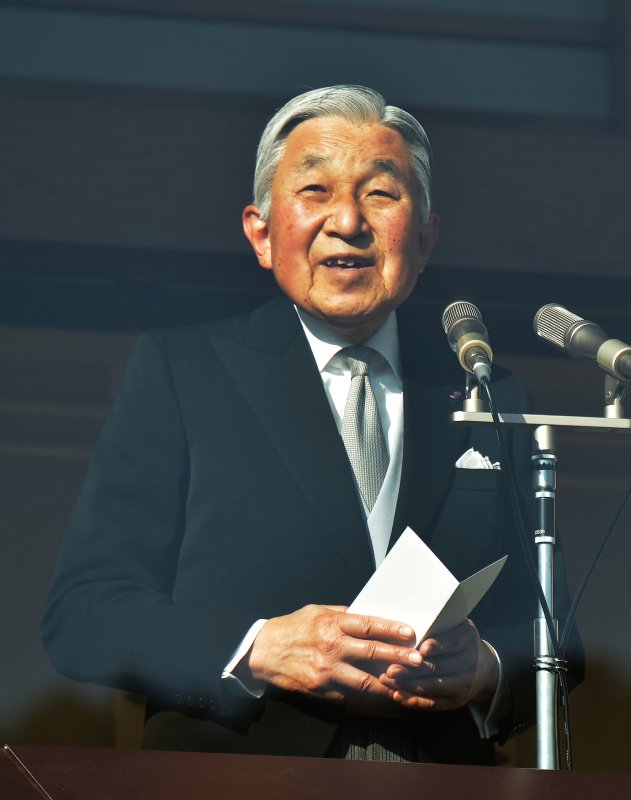Japan's Emperor Akihito offered a new year greeting at the Imperial Palace in Tokyo on January 2. He expressed an interest in abdicating the throne, citing his advanced age, On Friday, Japan's parliament enacted a single-use law allowing the throne to be passed to his eldest son, Crown Prince Naruhito. Photo by Keizo Mori/UPI |
License Photo
June 9 (UPI) -- Japan's parliament passed a law Friday allowing Emperor Akihoto to become the first monarch to abdicate the throne in 200 years.
The Diet deliberated the issue after Akihito, 83, announced his intention in 2016 to leave the throne. The popular ruler acknowledged his advanced age was slowing his public duties.
The single-use law unanimously enacted by the Diet's upper house Friday applies only to the current emperor; Akihito intends to abdicate the Chrysanthemum Throne in 2018, allowing Crown Prince Naruhito, 57, to advance to the emperor's position.
The Japanese Cabinet approved an abdication procedure in May, and the Diet's lower house approved the legislation last week.
Left in place was the longstanding succession system in which only males in the family are eligible to be ruler. Three male heirs -- Naruhito, his brother, Akishimo, 51, and Akishimo's son, Prince Hisahito, 10 -- are in the family lineage. There are 19 members of the royal household. If a female member of the family marries a commoner, she and her children lose their royal status.
The majority of the Japanese population favors changes to laws which would allow women of the Imperial household to reign. Legislation from the government of Prime Minister Shinzo Abe stopped short of permitting women to ascend to the throne to avoid angering his most conservative supporters, The New York Times reported on Friday.
Emperor Akihito's popularity stems largely from his openness and eagerness to represent Japan on the world stage in his 29-year reign. These are changes he instituted when he ascended the throne after the death of his father, Hirohito, who was once regarded as a deity in Japan.















